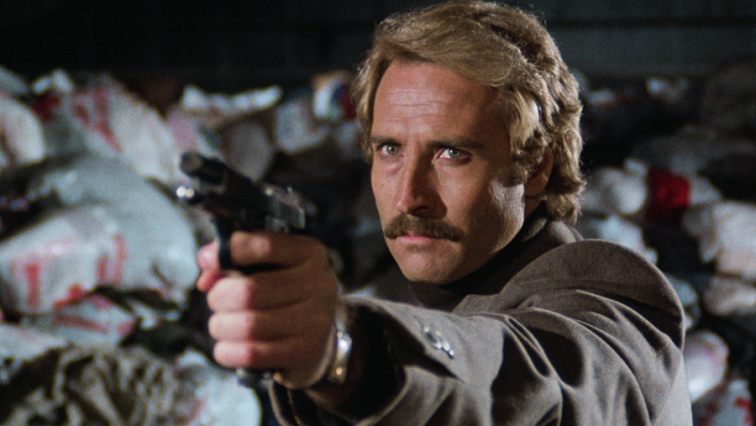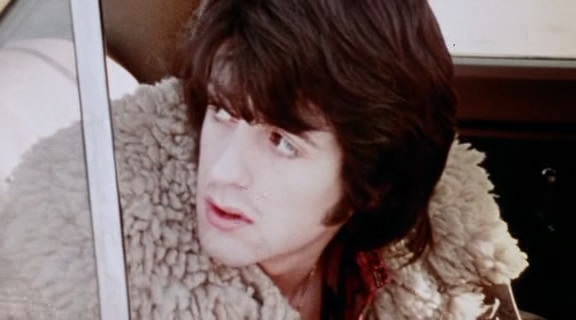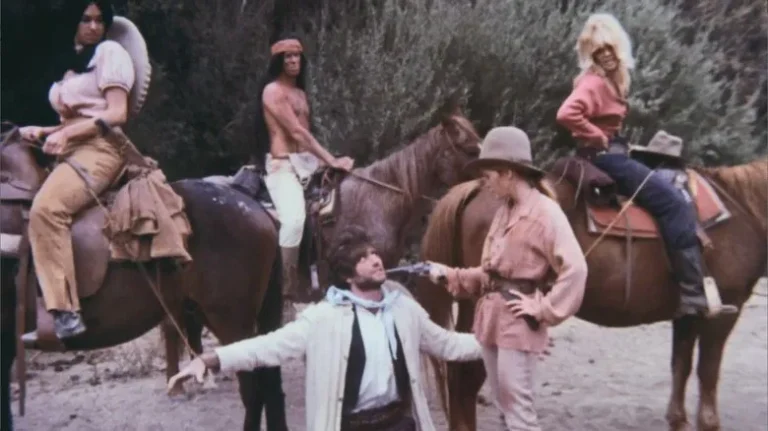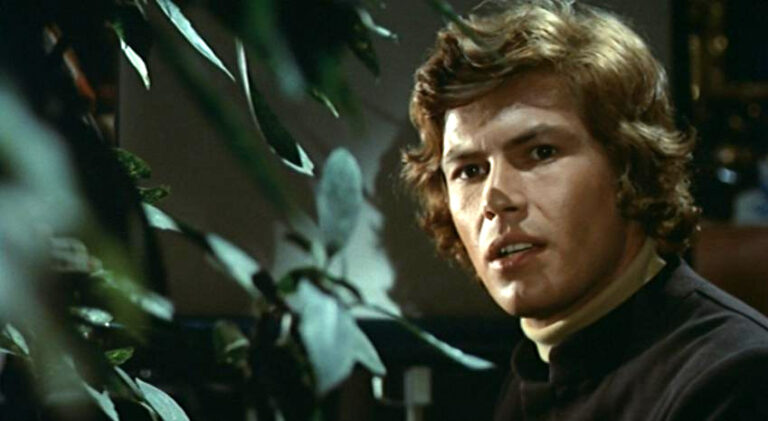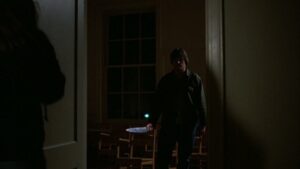-Grindhouse Fest is the special section in Celluloid Dimension where you can discover all the goodies…and baddies from the golden age of exploitation cinema. Have fun!
Directed by Umberto Lenzi
Written by Dardano Sacchetti
Starring:
- Maurizio Merli as Police Commissioner Leonardo Tanzi
- Arthur Kennedy as Vice Commissioner Ruini
- Giampiero Albertini as Police Inspector Francesco Caputo
- Ivan Rassimov as Tony Parenzo
- Biagio Pelligra as Savelli
- Tomas Milian as Vincenzo Moretto, also known as “Il Gobbo”
Rating: ![]()
Umberto Lenzi’s violent poliziottesco offers a tumultuous panorama of the criminal-infested city of Rome in the 1970s. A film with a crude and vitriolic attitude, in which its controversial director shows his finest facet as a social cynic – technically, one could speculate that all of Lenzi’s films operate as social critiques, whether in the realm of anthropophagy or the living dead or in that of his gialli, his vernacular is invariably socio-political – and what better venue for an anti-bureaucratic tirade than the nail-biting mechanics of a cop thriller of this sort.
Maurizio Merli – the Harry Callahan of the poliziotteschi – plays Inspector Tanzi, the irascible head of the anti-gang squad of the Italian police in Rome, who tenaciously hunts down the big crime lord who dominates all criminal operations in the city. The gangs are no longer distinguishable, crime is now monopolized and only one major gang is responsible for all illicit activities in the suburbs of Rome. Inspector Tanzi’s policy is only one: kill criminals if necessary. Consequently, his unorthodox tactics for dealing with the dregs of society collide with the bureaucratic reality of the pusillanimous Italian justice system. Judges release the criminals Tanzi apprehends and crime continues to reign in the unsafe streets of Rome. But the inspector’s intransigent temper keeps pushing forward with his apoplectic methodology to catch the members of the unified, massive mob. In his unremitting search for the mastermind of the murderous pandemonium pervading Rome, Inspector Tanzi runs into all sorts of eccentric and sleazy characters, most notably a duplicitous and ruthless hunchback played by Tomas Milian. He also bumps into Ivan Rassimov, who plays an abusive and nasty drug dealer.
Lenzi’s cold-blooded filmmaking takes advantage of the social panic of the Years of Lead to develop this plot in an atmosphere of uncertainty, right-wing terror and left-wing extremism, and of course state terrorism. Each role in this film fulfills a fundamentally political function. From the seething macho bravado of Maurizio Merli’s Inspector Tanzi to the delirious anarchism of Tomas Milian as the hunchback, everything is there to construct a contextual manifesto of the violence that undermines the hopes of modern Italy. Although sensationalistic, Umberto Lenzi’s portentous poliziottesco evokes a figment of cinematic social realism. It does not depict reality in a vérité style per se, but the unromantic vision of sociopolitical bedlam in 1970’s Italy, augmented by a polemical handling of its violent milieu, does qualify it as a piece of social realism. However, and this is where I want to conjecture more than specify, Umberto Lenzi’s political views on what transpires in the plot of his film are never fully elucidated, leaving you obfuscated.
Inspector Tanzi is unabashedly a reactionary figure – Maurizio Merli’s stark and stylish performance makes this abundantly clear – on the one hand the character’s belligerent impetuousness is judged in the film in a very lenient manner, yet his overt rejection of progressive policies is never questioned or challenged. On the other hand, the so-called humanistic treatment of criminals by the judicial and police institutions is scrutinized with acerbic gusto and fierce vigor. It’s as if Umberto Lenzi wanted to mythologize the two opposing sides of the political spectrum with this acrimonious clash between rebellion and compliance. But even so, the allegories are somewhat biased. The hunchback – who is clearly fashioned dramatically as the main villain in the plot, a very original one in fact – identifies with many of the tenets of the radical left; in one scene he even ironically calls himself a poor proletarian. Inspector Tanzi is an irrational guy when he gets cranky, but under the inspection of Lenzi’s camera this character makes more sense than any other. These comparative elements in the film work marvelously to craft a riotous cavalcade of incorrect characters doing incorrect things. But the ambiguity that Lenzi introduces confounds me for better and for worse.
It’s morally dubious filmmaking, that’s for sure, and it will surely be viewed with the same judgmental skepticism with which Don Siegel’s 1971 film Dirty Harry was criticized when it was released in theaters, but whatever its socio-political animus, Lenzi leaves you with a film of hard-hitting, radical substance that you’ll never forget. With its badass soundtrack courtesy of Franco Micalizzi and the formidable performances monumentalizing this opera of urban violence, Lenzi’s poliziottesco remains alarmingly relevant and astounding.
